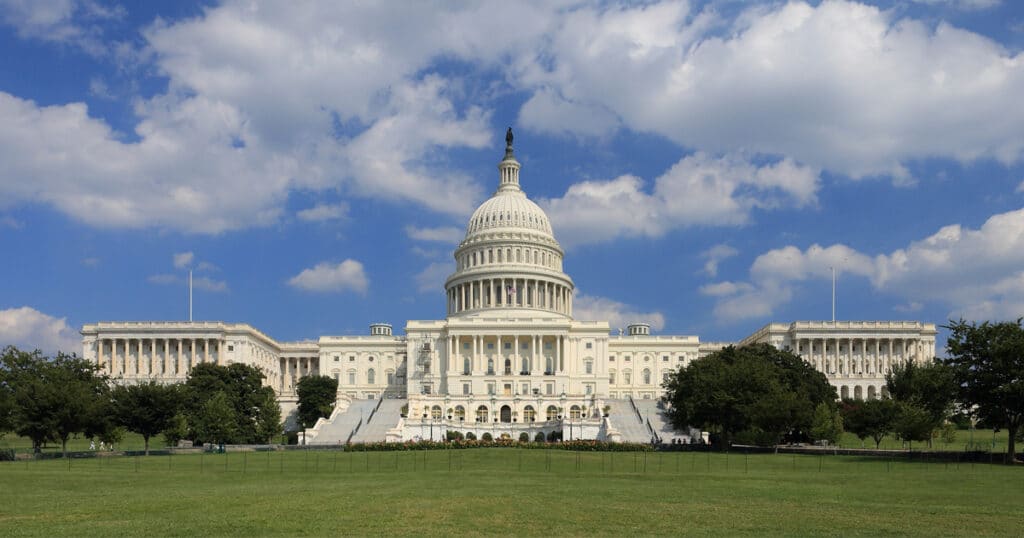
House Panel Moves to Stop Noncitizen Voting, Foreign Funding of US Referendums
House Republicans have advanced measures to prevent noncitizen voting and curb foreign influence in American elections, with some even gaining bipartisan backing.
The House Administration Committee on Thursday sent eight election-related bills to the full House for consideration, most of which still face an uncertain future. The measures now move to the House floor, but the bills face uncertain futures.
House Administration Committee Chairman Rep. Bryan Steil, R-Wis., said the bills bring the United States “one step closer to blocking election insecurities.”
“From preventing federal funds from going to states that allow noncitizens to vote, to blocking the Biden administration’s attempts to weaponize our federal agencies,” Steil said in a public statement after the committee meeting. “Each measure we passed today will increase voters’ confidence and ultimately lead to greater participation at the ballot box.”
The No Vote for Non-Citizens Act was reported out of committee on a bipartisan vote of 8-2. The bill would amend the National Voter Registration Act of 1993, better known as “the Motor Voter law,” and the Help America Vote Act of 2002 to ensure that only eligible American citizens may participate in federal elections.
This measure, sponsored by Rep. Morgan Griffith, R-Va., requires localities that allow noncitizens to vote in local elections to print separate voter lists and separate ballots from any federal elections.
Another bill repeals the recently passed District of Columbia law to allow noncitizens to vote in D.C. elections. While Washington, D.C., has limited home rule, it is still subject to Congress as nation’s capital. The committee approved the bill by Rep. Mike Bost, R-Ill., on a partisan 6-3 vote.
The D.C. law gives noncitizens who are at least 18 years old and have resided in the District for 30 days or more the right to vote in any D.C. elections for mayor, city council and other local offices.
“Allowing noncitizens, like [foreign] embassy staff, to vote in D.C. elections is inappropriate and contrary to our system of democracy,” Rep. Laurel Lee, R-Fla., said during the committee meeting.
However, Democrats defended the D.C. law.
“The comments are so insulting here about D.C.’s ability to elect their own elected officials with their own voters,” Rep. Norma Tores, D-Calif. “It’s so outrageous and offensive. It’s bullies bullying the D.C. residents.”
The Citizen Ballot Protection Act, which cleared the committee on a 4-3 party-line vote, allows a state to include as part of the federal voter-registration form a requirement that applicants provide proof of citizenship. The bill was sponsored by Rep. Gary Palmer, R-Ala.
Rep. Chip Roy, R-Texas, sponsored the Protecting American Voters Act, which cleared the committee on a 6-3 party-line vote. The bill requires the Homeland Security Department and the Social Security Administration to provide upon request information to states to verify the citizenship status of individuals registered to vote.
Committee Democrats opposed allowing local election officials to check the citizenship information with the federal agencies.
“This bill is another attack on elligible voters of color disguised as fraud prevention, for which this committee has shown no evidence exists,” Rep. Joe Morelle, D-N.Y., the committee’s ranking member.
Rep. Greg Murphy, R-N.C., defended the measure.
“It is paramount that we enforce that American citizens are the ones who vote, not individuals who came into this country illegally,” Murphy said during the committee meeting.
Less controversial was the Stop Foreign Funds in Elections Act, which passed by a unanimous voice vote. Rep. Brian Fitzpatrick, R-Pa., sponsored the bill, which would prohibit contributions by foreign nationals in elections or in connection with ballot initiatives or referendums.
Existing federal laws prohibit direct contributions from foreign nationals to political candidates, parties or political action committees, noted Rep. Anthony D’Esposito, R-N.Y.
“However, federal law does not prohibit foreign nationals from making contributions or donations in connection with state of local ballot initiatives or referenda,” D’Esposito said of the bill during the committee meeting. “This legislation rectifies that problem. American elections are for the benefit of American citizens and not foreign nationals.”
The popular measure was a unanimous recommendation of the three Republicans and three Democrats on the Federal Election Commission-recommended bill and likely could have enough bipartisan backing to pass the House and Senate and be sent to President Joe Biden’s desk for signature into law.
Three other measures did not pertain to noncitizens or foreign influence, but were about election security.
The committee voted unanimously to advance the Confirmation of Congressional Observer Access Act. The proposal just codifies the long-running Congressional Observer Program, which, under constitutional authority, deploys designated congressional election observers to observe federal election administration procedures. The bill was sponsored by Rep. Mike Carey, R-Ohio.
The committee reported the Federal Election Audit Act out on a party-line vote of 8-4. That bill, sponsored by Rep. Gregory Murphy, R-N.C., allows federal election assistance dollars to fund postelection audits for federal offices in a state.
The committee also voted 5-4 along party lines to repeal President Joe Biden’s Executive Order 14019, which requires federal agencies to engage in get-out-the-vote activities, and working with independent nonprofit organizations to turnout voters. Sponsored by Rep. Harriet Hageman, R-Wyo., the Safeguarding Electoral Integrity Act not only repeals the Biden order, but also requires every plan made under it to be submitted to Congress for review.


